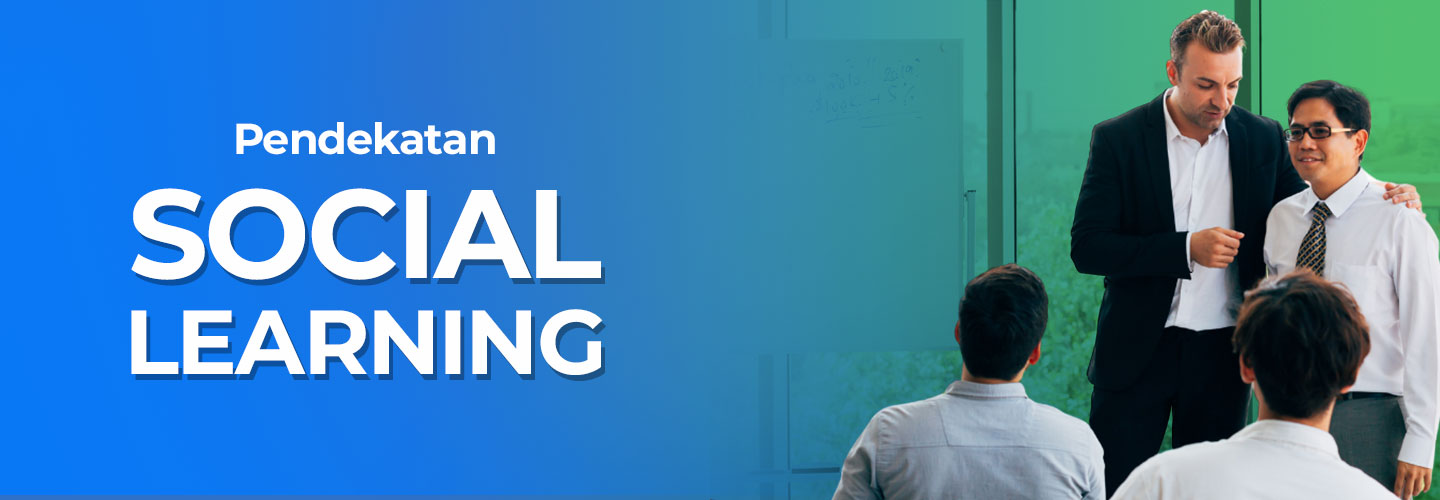Social Learning Approaches for a Positive Learning Environment

At all levels of formal and informal study, learning only from books is not enough. More information exchange will be obtained through participant involvement in the social learning process.
Not only in the school environment, social learning also plays a significant role at the tertiary and even postgraduate levels. Distance learning centers, virtual classes, and online forums also implement social learning in their sessions.
What is Social Learning?
Social learning emphasizes how to improve learning outcomes through interaction. Educators who play a key role in the learning process are expected to be able to create a positive environment. It aims to encourage critical, creative and collaborative thinking.
The social learning approach is based on Bandura's theory which significantly overlaps with the behaviorist learning theory of classical conditioning. Central to this approach is the belief that the cognitive learning process is something that occurs in a social context, not in a formal classroom.
In essence, this behavioral theory states that the learning process is a cognitive behavior that occurs in a social environment, where people observe other people and imitate their behavior. On an instinctive level, people are motivated to learn to improve their future social interactions.
Core Concepts of Social Learning
The effectiveness of social learning will be absorbed by the individual's behavioral instincts as a way of learning. In practice, most people have done this consciously or unconsciously. Quoting from the Verywell Mind website, social learning introduced by psychologist Albert Bandura is based on the following three core concepts.
1. People can learn through observation
One of the most famous experiments in the history of psychology involved a doll named Bobo. Bandura pointed out that children learn and imitate the behavior they observe in others.
The children in Bandura's study observed adults acting violently towards Bobo dolls. When children are allowed to play in a room with Bobo dolls, they begin to imitate aggressive actions they have previously observed.
Observational learning does not necessarily require observing other people to engage in an activity. When hearing verbal instructions such as listening to a podcast can also lead to a process of imitation. For this reason, learning can be done by reading, listening, or watching the actions of characters in books and films.
It is this type of observational learning that is a source of controversy as parents and psychologists debate the impact of pop culture media on children. Many worry that children may learn bad behavior such as aggression from violent video games, movies, television programs and online videos.
2. Mental state is important for learning
Bandura noted that external reinforcement and the environment are not the only factors that influence learning and behavior. The source does not always come from outside because it is one's own mental condition and motivation that plays an important role in determining whether a behavior is learned or not.
Intrinsic reinforcement is also described as a form of internal reward, such as pride, satisfaction, and a sense of accomplishment. This emphasis on internal thinking and cognition helps link learning theory to theories of cognitive development. Although many textbooks place social learning theory with behavioral theory, Bandura himself described his approach as "social cognitive theory".
3. Learning does not always bring change
In many cases, learning is immediately visible when new behavior is displayed. When teaching a child to ride a bicycle, you can quickly see the results that have occurred by having the child ride the bicycle without assistance.
However, sometimes there is something that can be learned without immediately seeing clear results. Although some believe that the learning process causes permanent changes in behavior, observational learning shows that people can learn new information without exhibiting new behavior.
The concept of social learning can be used to provide positive behavior to society. Apart from that, researchers can also investigate and understand positive examples that can encourage behavior and facilitate social change.
Applying the concept of social learning may be one of the right strategies to implement in learning programs in your company. For this reason, you can arrange it through Customized Programs to get an effective class program for your employees and the goals you want to achieve.